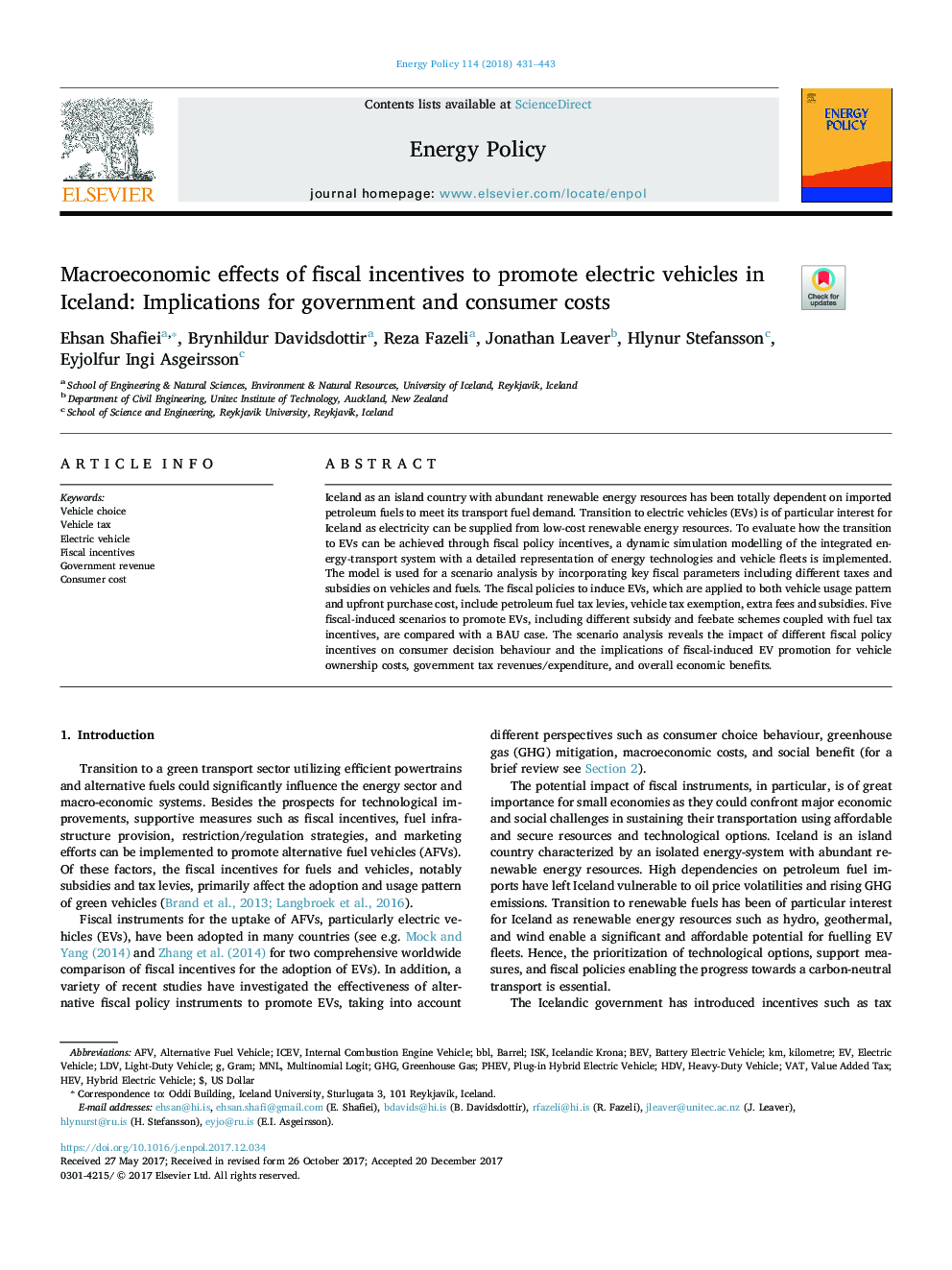| Article ID | Journal | Published Year | Pages | File Type |
|---|---|---|---|---|
| 7397779 | Energy Policy | 2018 | 13 Pages |
Abstract
Iceland as an island country with abundant renewable energy resources has been totally dependent on imported petroleum fuels to meet its transport fuel demand. Transition to electric vehicles (EVs) is of particular interest for Iceland as electricity can be supplied from low-cost renewable energy resources. To evaluate how the transition to EVs can be achieved through fiscal policy incentives, a dynamic simulation modelling of the integrated energy-transport system with a detailed representation of energy technologies and vehicle fleets is implemented. The model is used for a scenario analysis by incorporating key fiscal parameters including different taxes and subsidies on vehicles and fuels. The fiscal policies to induce EVs, which are applied to both vehicle usage pattern and upfront purchase cost, include petroleum fuel tax levies, vehicle tax exemption, extra fees and subsidies. Five fiscal-induced scenarios to promote EVs, including different subsidy and feebate schemes coupled with fuel tax incentives, are compared with a BAU case. The scenario analysis reveals the impact of different fiscal policy incentives on consumer decision behaviour and the implications of fiscal-induced EV promotion for vehicle ownership costs, government tax revenues/expenditure, and overall economic benefits.
Keywords
MNLGHGHEVPHEVAFVICEVLDVBBLBEVHDVmultinomial logitVehicle choiceIsKPlug-in Hybrid Electric VehicleBarrelHybrid electric vehicleInternal Combustion Engine VehicleElectric VehicleGovernment revenueUS dollarValue added taxVATFiscal incentivesBattery electric vehicleAlternative fuel vehicleLight-duty vehicleHeavy-duty vehicleKilometreGreenhouse gasGram
Related Topics
Physical Sciences and Engineering
Energy
Energy Engineering and Power Technology
Authors
Ehsan Shafiei, Brynhildur Davidsdottir, Reza Fazeli, Jonathan Leaver, Hlynur Stefansson, Eyjolfur Ingi Asgeirsson,
